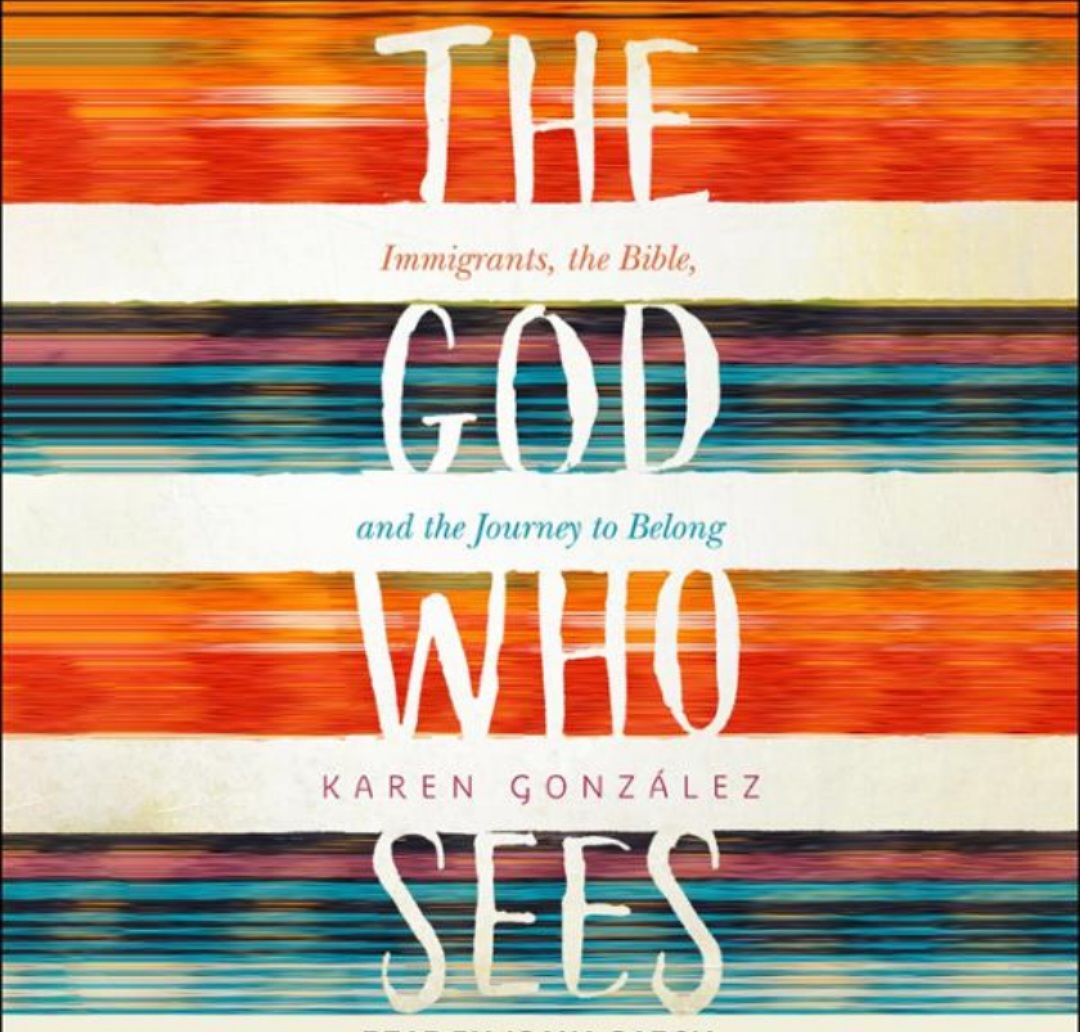Book Review: The God Who Sees by Karen Gonzalez
Immigration Justice intern Ed White encourages churches wanting to build a theology around the experiences of immigrants to read The God Who Sees.

The God Who Sees is a necessary reorientation of well known biblical narratives. In this book, Karen Gonzalez centers the stories of Abraham, Hagar, Joseph, Ruth, and Jesus on the biblical call of radical hospitality and justice. Gonzalez demonstrates that if we examine the details of these crucial individuals of our faith, we see that our holy scriptures have lifted up the displaced and downtrodden. Moreover, it is much more than that. Gonzalez shows that the Lord our God has given these immigrants elevated positions in the foundation of Christianity.
For example, The God Who Sees brings our attention to the reality of Abraham. Abraham is far from perfect. As he moves from his home to Egypt and then finally to the land of Canaan, Abraham makes many mistakes. But, as a church, we never hold these mistakes over him. In fact, he is exalted as the father of faith. Why does this matter? To put it succinctly, this imperfect father of our faith was an immigrant.
By returning to the holy scriptures, Gonzalez draws powerful parallels between the histories of the founders of our faith and the real life experiences of migrants and immigrants across the world. She shares details of her own experience of immigrating from Guatemala to the United States of America as a young child. She discusses the difficulties she and her family endured in this transition to their new lives.
Gonzalez stresses that God has always had a clear and strong position on the topic of immigration, just like the United Methodist Church. God instructs his people to welcome the foreigner, treat them as one of their own, and not deny them what should be theirs by divine right. God’s grace and love calls us out of a scarcity mindset and into one of abundance to be shared with all, especially the foreigner.
The God Who Sees is a phenomenal place to begin this conversation in a congregation that struggles to see the value of the immigrant. Throughout the book, Gonzalez draws the reader’s attention to important details that bible readers may have missed before. She emphasizes the contextual identities of these individuals and how God includes and makes them irreplaceable in the divine plan.
The God Who Sees can challenge previously conceived notions of how Christians should interact with immigrants, stress scripture’s position on diversity and inclusion, and challenge those who are uneasy about immigration in the United States. Read The God Who Sees, and you will be reminded that migration is a part of human history, it is a part of Christian history, and it’s a part of the history of the United States.
The UMC’s Book of Discipline, containing the Social Principles and official statements of our church, echo the message of The God Who Sees. This message is not to be taken lightly, as it is a core part of the Methodist tradition and the currently affirmed beliefs. This church, our church, affirms everyone, “regardless of country of origin, as a member of the family of God” (Social Principles, ¶162.H).
As you engage with The God Who Sees, you will see that it has never been a question of whether or not God sees, loves, and welcomes the immigrant. God has always welcomed immigrants. The central question after reading this book is: Will we, the body of Christ, see, love, and receive God?